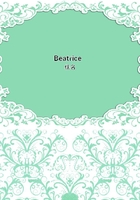
第96章 WHAT BEATRICE SWORE(2)
Then what remained to her? She would not fly with Geoffrey, since to do so would be to ruin him. She would not marry Owen, and not to do so would still be to ruin Geoffrey. She was no fool, she was innocent in act, but she knew that her innocence would indeed be hard to prove--even her own father did not believe in it, and her sister would openly accuse her to the world. What then should she do? Should she hide herself in some remote half-civilised place, or in London? It was impossible; she had no money, and no means of getting any. Besides, they would hunt her out, both Owen Davies and Geoffrey would track her to the furthest limits of the earth. And would not the former think that Geoffrey had spirited her away, and at once put his threats into execution? Obviously he would. There was no hope in that direction.
Some other plan must be found or her lover would still be ruined.
So argued Beatrice, still thinking not of herself, but of Geoffrey, of that beloved one who was more to her than all the world, more, a thousand times, than her own safety or well-being. Perhaps she overrated the matter. Owen Davies, Lady Honoria, and even Elizabeth might have done all they threatened; the first of them, perhaps the first two of them, certainly would have done so. But still Geoffrey might have escaped destruction. Public opinion, or the sounder part of it, is sensibly enough hard to move in such a matter, especially when the person said to have been wronged is heart and soul on the side of him who is said to have wronged her.
Moreover there might have been ways out of it, of which she knew nothing. But surrounded as she was by threatening powers--by Lady Honoria threatening actions in the Courts on one side, by Owen Davies threatening exposure on another, by Elizabeth ready and willing to give the most damning evidence on the third, to Beatrice the worst consequences seemed an absolutely necessary sequence. Then there was her own conscience arrayed against her. This particular charge was a lie, but it was not a lie that she loved Geoffrey, and to her the two things seemed very much the same thing. Hers was not a mind to draw fine distinctions in such matters. /Se posuit ut culpabilem/: she "placed herself as guilty," as the old Court rolls put it in miserable Latin, and this sense of guilt disarmed her. She did not realise the enormous difference recognised by the whole civilised world between thought and act, between disposing mind and inculpating deed. Beatrice looked at the question more from the scriptural point of view, remembering that in the Bible such fine divisions are expressly stated to be distinctions without a difference.
Had she gone to Geoffrey and told him her whole story it is probable that he would have defied the conspiracy, faced it out, and possibly come off victorious. But, with that deadly reticence of which women alone are capable, this she did not and would not do. Sweet loving woman that she was, she would not burden him with her sorrows, she would bear them alone--little reckoning that thereby she was laying up a far, far heavier load for him to carry through all his days.
So Beatrice accepted the statements of the plaintiff's attorney for gospel truth, and from that false standpoint she drew her auguries.
Oh, she was weary! How lovely was the falling night, see how it brooded on the seas! and how clear were the waters--there a fish passed by her paddle--and there the first start sprang into the sky!
If only Geoffrey were here to see it with her. Geoffrey! she had lost him; she was alone in the world now--alone with the sea and the stars.
Well, they were better than men--better than all men except one.
Theirs was a divine companionship, and it soothed her. Ah, how hateful had been Elizabeth's face, more hateful even than the half-crazed cunning of Owen Davies, when she stretched her hand towards her and called her "a scarlet woman." It was so like Elizabeth, this mixing up of Bible terms with her accusation. And after all perhaps it was true.
--What was it, "Though thy sins be as scarlet, yet shall they be white as snow." But that was only if one repented. She did not repent, not in the least. Conscience, it is true, reproached her with a breach of temporal and human law, but her heart cried that such love as she had given was immortal and divine, and therefore set beyond the little bounds of time and man. At any rate, she loved Geoffrey and was proud and glad to love him. The circumstances were unfortunate, but she did not make the world or its social arrangements any more than she had made herself, and she could not help that. The fact remained, right or wrong--she loved him, loved him!
How clear were the waters! What was that wild dream which she had dreamt about herself sitting at the bottom of the sea, and waiting for him--till at last he came. Sitting at the bottom of the sea--why did it strike her so strangely--what unfamiliar thought did it waken in her mind? Well, and why not? It would be pleasant there, better at any rate than on the earth. But things cannot be ended so; one is burdened with the flesh, and one must wear it till it fails. Why must she wear it? Was not the sea large enough to hide her bones? Look now, she had but to slip over the edge of the canoe, slip without a struggle into those mighty arms, and in a few short minutes it would all be done and gone!